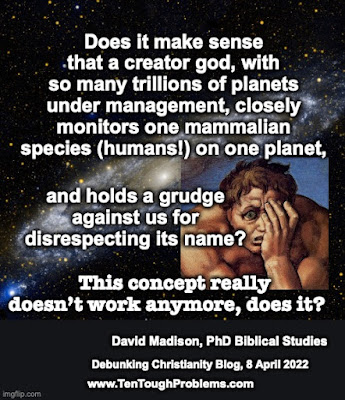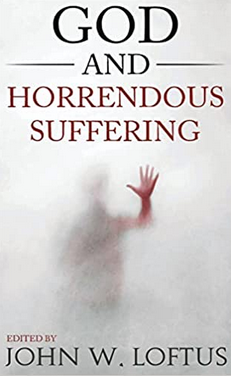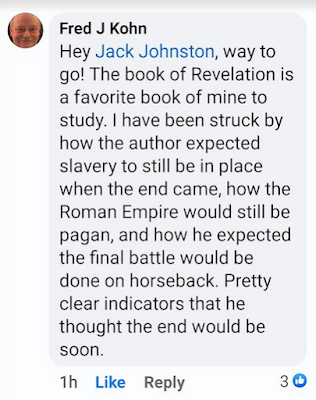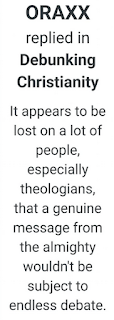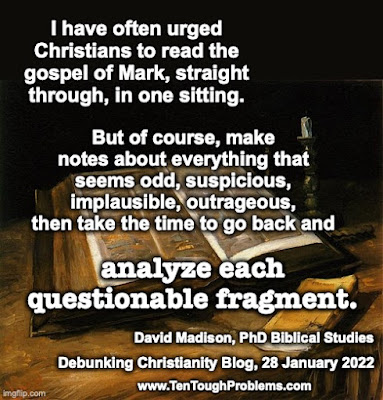REASSESSING PAUL'S TIMELINE by Bart Willruth.
Paul,
the so-called founder of Christianity, may not have been who we think
he was, or lived when we think he lived. In this presentation, I will
take some things for granted. I am writing from the perspective of a
Christ mythicist; that is, there was no historical Jesus of Nazareth,
and Christianity developed on different grounds. This has been argued
elsewhere, therefore I will not repeat the arguments here; see "The
Varieties of Jesus Mythicism" edited by John Loftus and Robert Price.
I realize that any attempt to
date, or re-date, Paul will be speculative, but that process also
includes the attempt to maintain the traditional timeline. But lack of
proof doesn't preclude assessing probability. That which I will present
in brief below is a novel paradigm; I would point out that the value of a
paradigm rests in its utility in answering questions and drawing
together a coherent explanation for the data. This is still a work in
process.
I began this survey several years ago as I noticed
anomalies and problems in the traditional view of Paul. That Paul was
not writing in response to a historical Jesus is, by definition, a
conclusion of virtually all of the Christ-myth theories. That the
gospels and Acts are not historically reliable is a corollary to that
position and is the conclusion of The Acts Seminar (WESTAR) and
familiar names such as Robert Price, Richard Carrier, Earl Doherty R. G.
Price, David Madison, and others; they cannot be used to tell us
anything firm about Paul's biography or thought. All recognize the
principle of giving primary sources (Paul’s own letters) absolute
priority. Nevertheless, many of my fellow Christ-myth proponents
continue to assume Paul's traditional timeline, that he was in some way
converted to a form of Christianity in the 30's CE, that he began
traveling throughout Greece and Asia Minor in the 40's CE to spread the
word to the gentiles, and wrote letters to the believers in various
cities during the 50's CE. But what are these dates based on? The answer
is clearly the chronology of the gospels and Acts. But if there was no
historical Jesus and Acts is theological/historical fiction, what ties
us to these dates? We are effectively cut loose from those constraints
except by habit and presupposition. In conversations I've had with other
mythicists (most of whom are well known to the readers of John Loftus'
books) the common responses to this problem are all variations of, “I
agree that Acts is not reliable history, but it’s all we have,” or
"These dates are overwhelmingly accepted by scholars. Why should we
change them?" Of course, most of these scholars they reference are
accepting some level of historicity for the Jesus of the gospels and
Acts, so we end up in a circular defense chain with one major broken
link. I still find some mythicists repeating some version of the phrase
"within a few years of the crucifixion" or "the presumed date of the
crucifixion." This imposes the later beliefs of Christian writers into
the earlier writings of Paul as though he was writing in response to a
historical Jesus which is a conclusion at odds with that of the
Christ-myth theory. It is simply improper methodology to assume a
chronology for Paul based on the later assignment of a date for a
historicized Jesus and the immediate inauguration of the Christian
movement. Bottom line: reassessing Paul's timeline is a direct and
necessary consequence of deeming the Gospels and Acts as non-historical.
Re-dating Paul would likely impact our understanding of his thoughts
and purpose.
As an aside, Robert Price, in his book "The Amazing
Colossal Apostle" suggests that Paul's letters date from the late first
century CE to the second century CE. While we differ on where to assign a
re-dating of Paul, we both recognize that there is no reason to hold to
traditional dating. In his post, "How do we know the Apostle Paul Wrote
His Epistles in the 50's AD", Richard Carrier acknowledges that "I
don’t consider this matter as settled as mainstream scholars do. Paul’s
Epistles do fit remarkably well the 50s B.C." However, he still wishes
to maintain the traditional timeline.
Some other points to consider: According to the Acts Seminar, “Acts and Christian Beginnings”,
*Christianity did not begin in Jerusalem. It likely began in a Hellenized region.
*Acts was written in the second century.
*The author of Acts was writing a theological apologetic, not history.
*Acts cannot be considered a source for Paul’s biography.
*Acts must be considered non-historical unless proven otherwise.
I
started questioning how we would assign a chronology to Paul without
the gospels and Acts; that is, if we just discovered Paul's writings in a
cave and didn't have the baggage of tradition and presuppositions about
his timeline and the timeline of Christian origins, how would we date
them? This question is so important that it should be repeated. Since we
have no contemporary external data referring to Paul, we are
essentially in that position of having just found his writings in a
cave. Relying solely on internal clues, how would we assign a date of
authorship to these writings. I began a survey of the boring details
regularly skipped over by exegetes who are in a hurry to get to the
theology; the people Paul mentioned, places mentioned, events, and
terminology used, all in the attempt to find historical clues to tie him
to a particular timeline. Very quickly, it became apparent that there
is no historical marker referenced in Paul's writings which tie him to
the traditional timeline, once the historical Jesus is removed from the
equation. Yet, Paul does mention quite a few people, events, places, and
terms which elicit questions vis a vis the traditional chronology as
well as his identity and that of his addressees. After examining the
clues available, it has become apparent to me that his timeline is
defective and needs to be reassessed. At the same time, it would appear
that his biography needs a second look.


